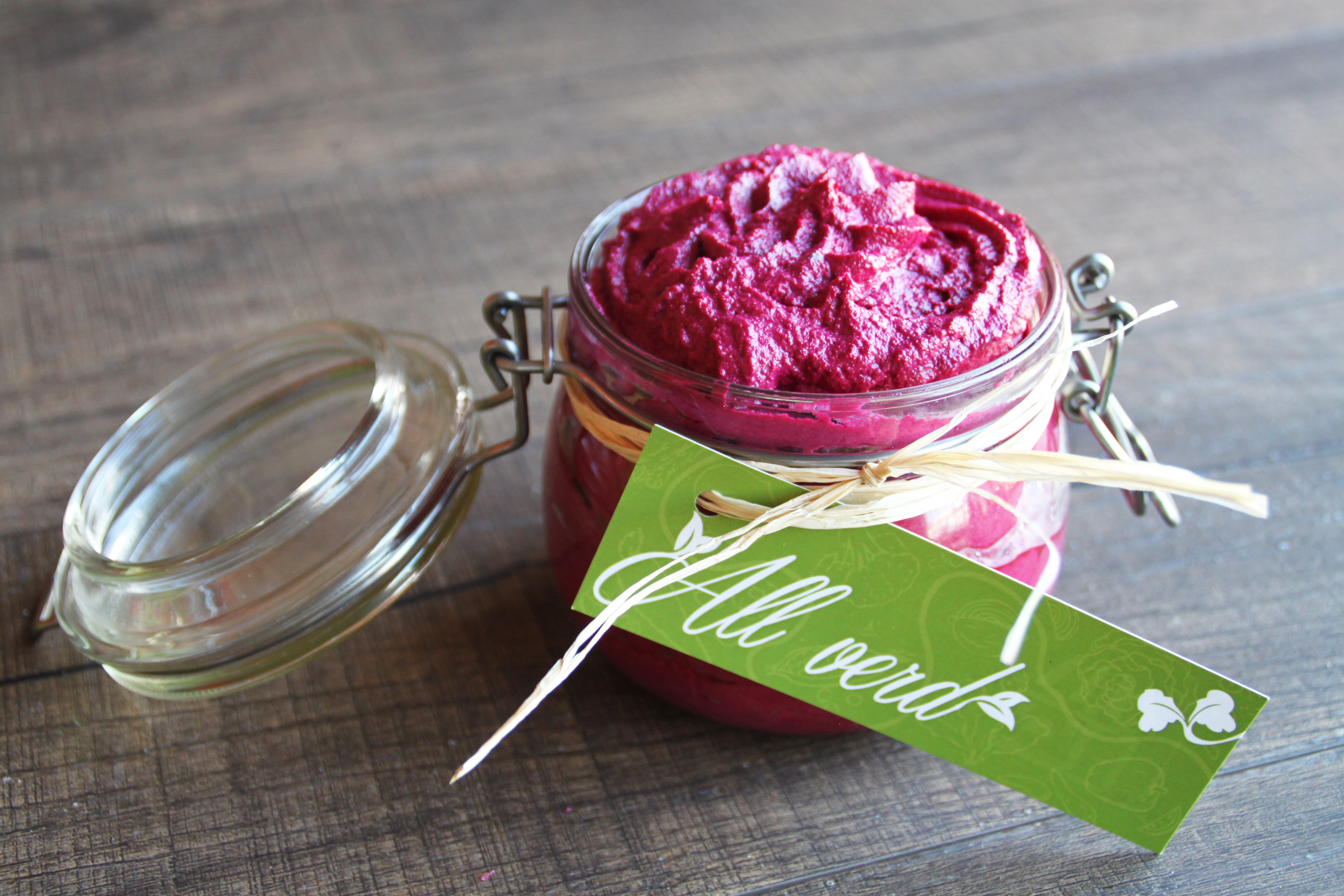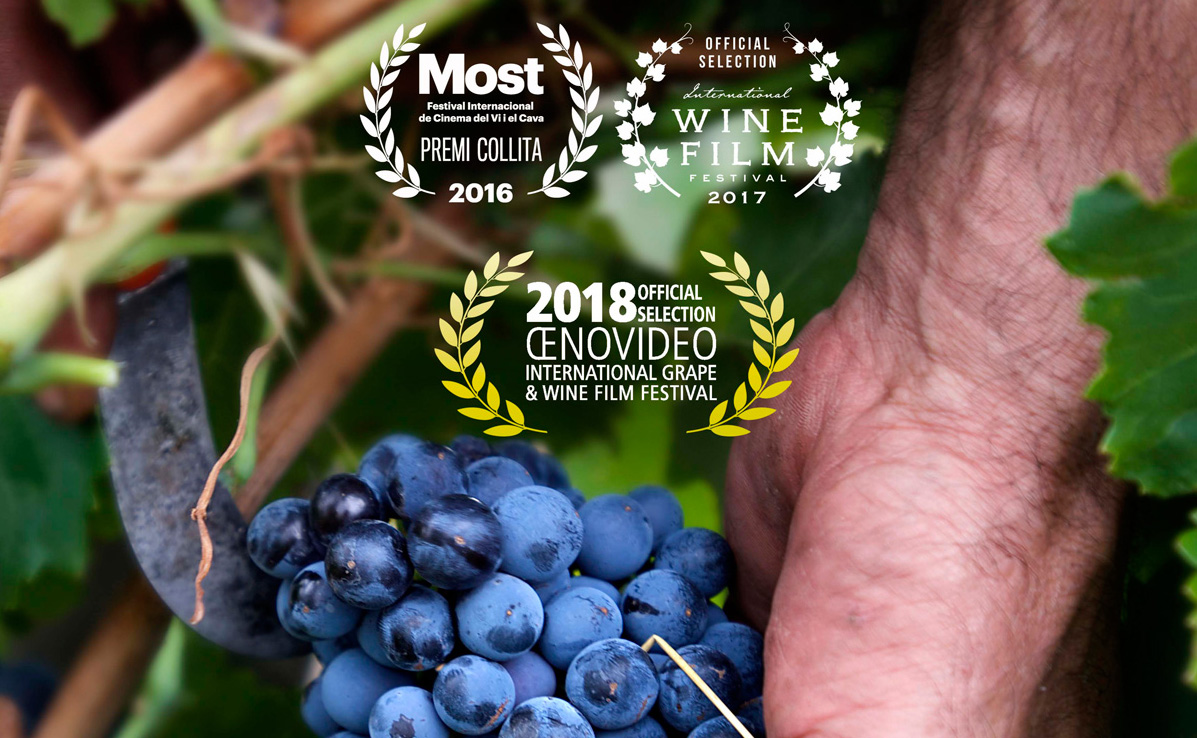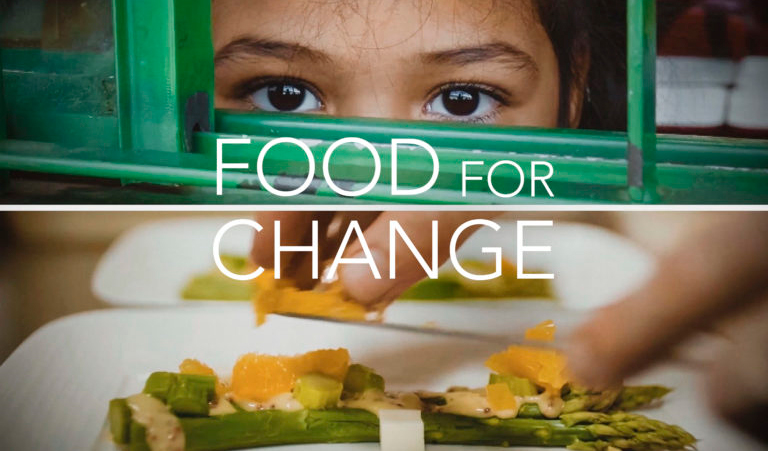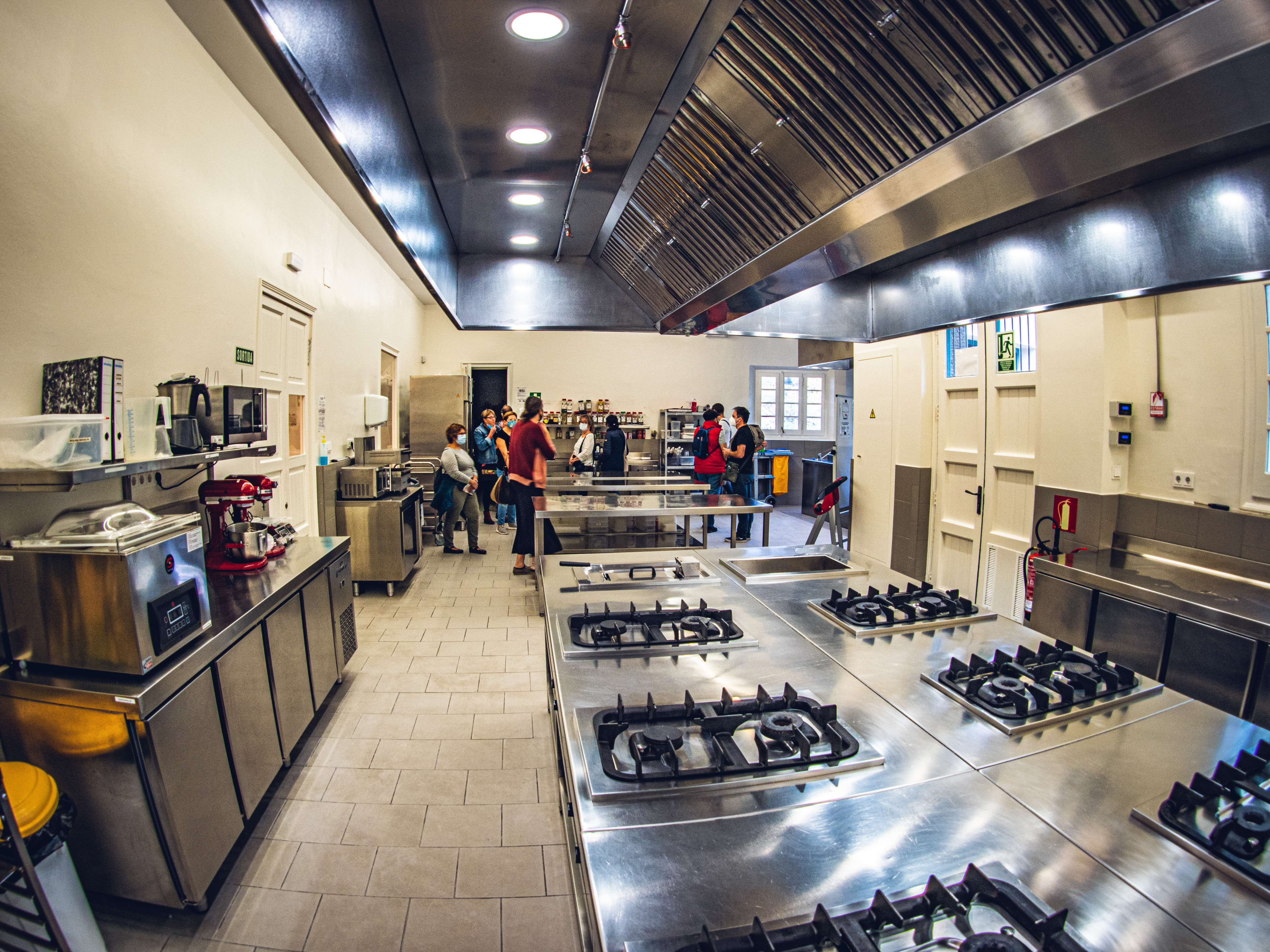Doing it for the pleasure of caring for ourselves and finding a balance, without restrictions or feelings of guilt.
A healthy relationship with food, making the most of seasonal produce and letting creativity into our kitchen, even if it's only for the lunch box we take to work.
We’ll try, using uncomplicated recipes, tastes, aromas and colours. We'll emphasise the importance of colour in our dishes.
Emotions and healthy eating go hand in hand.
Sustainable Food Citizen Week
Video resum de la Setmana Ciutadana de l'Alimentació Sostenible 2021
The activities of the Sustainable Food Citizen Week
Sustainable Food Citizen Week provides an opportunity to understand the relationship between food habits and cross-cutting aspects such as the climate emergency, local economic development, culture, politics, social rights and health. A week dedicated to citizens, in which you will achieve knowledge, reflection and debate about the main issues of the following activities.
Gastronomic heritage
- October 21st - 18.00 HBetevé broadcastingTelevised cooking workshop
- October 22nd - 22.00 H (variable according to betevé programming)Betevé broadcastingDocumentary film season
Documentary on natural wine in Spain. A trip from the north to the south of the country, with the vineyard and wine as the background.
A reflection on natural wine from its producers and opinions from renowned sommeliers.
This activity is part of Betevé's documentary film season, including the films Fermentación espontánea, Taste the waste, Food for change and Il mare piange.So you can combine the documentary with a wine tasting at home, we provide you with a list of wines by order (and time) of appearance.
Minute 01 – Sparkling wine from an ancestral method made in the Alt Empordà. Sparkling wine with unique fermentation.
Minute 05- Red wine from the mountains, made on the north side of the Alpujarra in Granada.
Minute 10 – Mineral and fresh wines made in the Sierra de Gredos (Avila), mainly with Garnacha, also with local white varieties such as Chelva, Albilla Real and Malvar.
Minute 13 – Red wine from the Sierra de l’Albera, in the Alt Empordà, made with Garnacha and Carignan (Lledoner and Samsó).
Minute 16 – White wine with maceration of the skins (orange wine) from Penedès made with Xarello from old vines worked within biodynamic parameters.
Minute 19 – Light red wine made with Sumoll, a native grape of the Penedès. From vineyards surrounded by forests of the Alt Penedès.
Minute 23 - Red wine from Galicia from a heroic viticulture of micro-plots in the Ribera Sacra area.
Minute 27 - White wine from the La Mancha variety and the most planted in the peninsula: Airén, in this case, comes from very old, free standing vineyards.
Minute 31 - Terra Alta red wine, inland Catalonia. From a dry and warm area, with powerful aroma and flavour.
Minute 36 - Wine with Mediterranean expression, made in clay vats in the region of Murcia, from the Tintorera Garnacha grape variety.
Minute 38 - White wine from Montepila grapes from vineyards surrounded by olive trees in Cordoba. - October 29 and 30 from 12.00 to 23.30 H, and October 31 from 12.00 to 22.30 HLa Rambla de Barcelona (between Centre d'Art Santa Mònica and Colom)Market
“Terra i gust” is a gastronomic project that links restaurants with small producers, an initiative from Barcelona City Council and organized by Gastronomia de Proximitat and Slow Food Barcelona, with the support of the Association of Gastronomy and Tourism of Baix Llobregat and l’Hospitalet.
It will be a place for citizens to see the different stakeholders involved in the value chain of local products and sustainability, and to point out the importance of the small artisanal producer, of maintaining traditions and environmentally friendly techniques, highlighting the union with gastronomy.There will be various different spaces:
- Spaces for sustainable gastronomy
- Spaces for beverages, with the participation of the Barcelona Beer Festival, with a selection of craft beers. Natural wines, filtered water, and kombucha will also be served.
- Producers market with seasonal and ecological products.
- There will also be an area for cooking shows, talks and games for kids-
Waste vs Good use
- October 16th - 12.00 HParc de la BarcelonetaTalk
The mission of the NGO Nutrition Without Borders is to contribute to reducing nutrition inequalities throughout the world, in accordance with human rights. They act from the perspective of cooperation, training and empowerment, promoting the balanced use of the world's food resources and solidarity amongst peoples of all nations, in line with the 2030 Sustainable Development Goals.
At Nutrition Without Borders, we are aware of the economic crisis which is affecting some sectors of the population, a factor that increases vulnerability and leads to poverty and social exclusion.
“Sharing food” is an initiative for making the best use of food resources and networking to help prevent food waste and reduce the impact of poverty in the Barcelona Metropolitan Area. The project aims to protect the universal right to food for Barcelona citizens at risk of social exclusion, while also cutting down on food waste and helping reduce the city's ecological footprint to favour the planet. - October 16th - 12.30 HParc de la BarcelonetaWorkshop
What foods are naturally available in each season? How can we maintain a varied, healthy and sustainable diet? This master class guides participants towards sustainable, local and seasonal food. During the session, we will see various strategies for healthy cooking and seasonal food conservation, so we can enjoy them all year round and get the most out of them.
The master class also shares practical ideas for conserving, storing and cooking the food, sharing explanations about the social and environmental importance of our food habits with the audience. Gaining a culture of better food use and providing specific tools for getting the most out of food products. Advice is given on how to eat a complete, balanced diet without dying in the process. Where should we store carrots? What do we do with so many tomatoes? What we can do with summer fruit? If you would like to hear some practical, everyday advice that is fun and visual, don’t miss this class! - October 16th - 17.30 HParc de la BarcelonetaRound table
Relationships of power within the agri-food system and their impact on public policies
For over a decade the loss of food sovereignty has been recognised as a key factor in the impoverishment of the people. This basically affects people living in rural environments, but there is an increasing amount of protest in cities, due to a loss of control and decision-making in terms of what we eat every day.
Due to the situation created by the Covid-19 pandemic, we have become even more aware of the
current food system's inability to respond to the general public's needs, especially in sectors of society with pre-existing inequalities.
All of these conditioning factors of poor diet, together with advertising and labelling, generate health problems in an increasingly large proportion of society.In response to this, alternative initiatives to food banks have arisen in many cities, with a transformative focus on these social inequalities. Likewise, there is a clear need for institutions to include public policies that guarantee access to this human right.
From the perspective provided by food sovereignty, we aim to tackle the capacity and decision-making processes which determine what is produced, where it is produced, how
it is produced and on what scale, as well as how these social inequalities are created.
Urban rurality and biodiversity
- October 17th - 20.00 HPlaça ReialShow
At the improshow we play with knowledge about food, sustainability and the climate emergency. We’ll be improvising everyday situations connected with sustainable food and local organisations, through humour and based on audience suggestions.
An innovative experience in which the audience will become the authors of stories that are surprising, exciting and fun. - October 18th - 17.30 HParc de la Ciutadella - Passeig de Pujades amb Passeig Lluís CompanysVisit / Tour
A walk for discovering the many wild plants we have close to home that we were unfamiliar with and the varied possible uses of which we could never have imagined. We’ll learn how to identify them, we’ll smell and taste them and discover the uses each of the species has inside and outside the kitchen.
- October 19th - 17.30 HJardins Pla i ArmengolVisit / Tour
A walk for discovering the many wild plants we have close to home that we were unfamiliar with and the varied possible uses of which we could never have imagined. We’ll learn how to identify them, we’ll smell and taste them and discover the uses each of the species has inside and outside the kitchen.
Ecological footprint
- October 17th - 20.00 HPlaça del ReiScreening
Recovering the earth’s natural capacity to store carbon and sustain life could be one of the most effective ways to combat climate change.
Therefore, it is necessary to recompose all the stages of this complex framework, a task that many people are promoting through different initiatives around the world. This documentary shows us that the answers to environmental problems lie in nature, literally beneath our feet. - October 17th - 20.00 HPlaça ReialShow
At the improshow we play with knowledge about food, sustainability and the climate emergency. We’ll be improvising everyday situations connected with sustainable food and local organisations, through humour and based on audience suggestions.
An innovative experience in which the audience will become the authors of stories that are surprising, exciting and fun. - October 18th - 22.00 H (variable frequency programming betevé)Betevé broadcastingDocumentary film season
Our plate is our most powerful tool to fight global warming and protect the planet. Our diet currently plays a very significant role in the dangers that threaten our planet. But there is hope. Investigative journalist Benoît Bringer travels the world looking for men and women who are producing a new food model, one that is respectful of both humanity and nature. This documentary gives us hope and shows us how each of us can be an agent of change and develop recipes for an economically viable food transition.
This activity is part of the Betevé documentary film series that includes the films Fermentación espontánea, Taste the waste, Food for change and Il mare piange.
Proximity
- October 17th - 20.00 HPlaça ReialShow
At the improshow we play with knowledge about food, sustainability and the climate emergency. We’ll be improvising everyday situations connected with sustainable food and local organisations, through humour and based on audience suggestions.
An innovative experience in which the audience will become the authors of stories that are surprising, exciting and fun. - October 19 at 7:30 h / October 20, 21 and 22 at 16:00 hFishermen's Guild of BarcelonaVisit / Tour
The fish market is a specific part of the Barcelona fishing port where the fish that have been caught during the day are auctioned off for sale. On the occasion of Sustainable Food Week, the market opens its doors so that we can learn about the fleet of the Fishermen’s Guild of la Barceloneta, the various fishing methods used and the environmental impact they have. During the visit, we will talk about the types of fishing and the methods used to catch different species, while learning what a day at the market is like, what species are sold at auction, and what measures are being taken to address the new challenges that are putting marine ecosystems at risk.
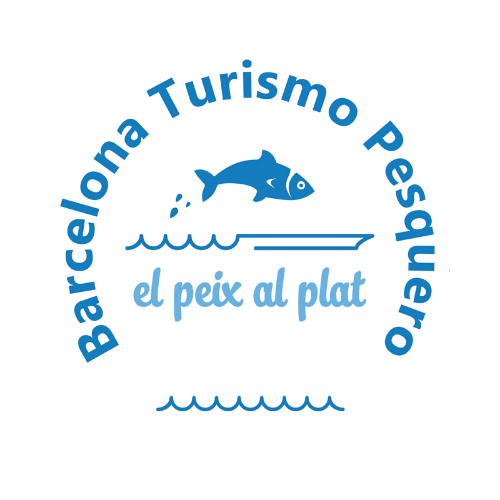
- Remnants and futures of agriculture in Barcelona: La Ponderosa, El Rec Comtal and La Casa de l’AiguaOctober 23th from 10.00 to 13.00 HCasa de l'Aigua de la Trinitat NovaVisit / Tour
Are there any allotment estates left in Barcelona? How does Barcelona feed itself? How vulnerable are we, without having land available for producing the food we eat? Discover La Ponderosa, the city’s last allotment estate, the Rec Comtal and water heritage, and fall in love with local produce and sustainable food.
More week
- October 24th from 11.00 to 12.30 HPrat de la Riba 71, Santa Coloma de GramanetVisit / Tour
This is project for changing the use of the Noucentista Canigó pavilion, at the Torribera complex, designed by architects Masó and Pericas. The building had mainly been used for the care and residence of mentally ill people: Now a new use is proposed for it as a restoration school. The project takes account of the original spaces and finishings and aims to emphasise the structure of the building’s Noucentista vaults and arches. The pavilion’s spaces are sufficiently versatile and generous for the new programme to be comfortably located there in accordance with current functional requirements. The interior treatment is very neutral, seeking the clearest and cleanest possible expression of the facilities.
- October 24th from 11.30 to 12.30 H and from 12.30 to 13.30 HFundació Joan MiróTalk, Culinary experience
Miró always had a carob pod from Mont-roig del Camp tucked in his pocket. Discover more about this local alternative to cacao, a superfood that’s been unfairly discredited in recent decades. Get to know the properties of carob, plus some of its secrets and a few quirky facts, and you’ll see tempting ways to make it a part of your diet, to strengthen the rural economy and at the same time avoid the progressive loss of cultivated land.





